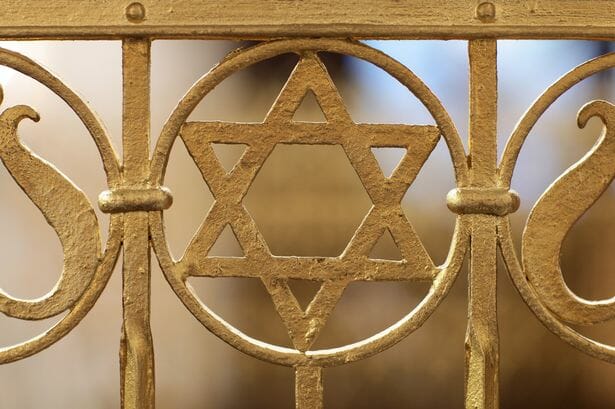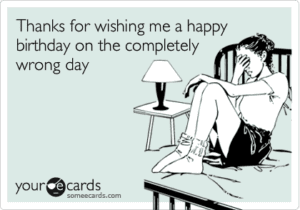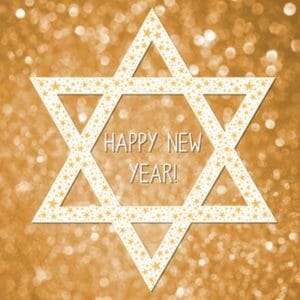Happy New Year

While you are reading this blog entry, I am in the midst of celebrating the New Year. I’ve been planning and cooking for this all week. I fit that into my work week. Many people fit it in with work, plus the extra work of the beginning of a school-year cycle.
Friends, store clerks, and strangers aren’t greeting me with “Happy New Year” or “are you ready for the New Year?” or “are you traveling for the New Year?” No New Year decorations are set up in to stores for weeks or months ahead. There are few or no special sales on New Year foods in the grocery stores or CVS. Yet this is the biggest holiday of the year for me.
 My husband, Dennis, is a communication consultant. He offers this analogy about the silence Jews hear at our New Year, compared with the barrage we hear from mid-November through the secular New Year.
My husband, Dennis, is a communication consultant. He offers this analogy about the silence Jews hear at our New Year, compared with the barrage we hear from mid-November through the secular New Year.
“Happy birthday,” I say to you.
“Thanks,” you say, “but it’s not my birthday. That was months ago.”
“Oh,” I reply. “Well, most people I know are celebrating their birthdays this month, so I’ll wish you happy birthday now.”
How would you feel about that? Would you be happy that I wished you well–no matter when? Or…would you be annoyed that I didn’t know when you were born (and apparently, I didn’t care)?
I know that I am in a minority in this country. I am in a sometimes-hated religious minority. I am a woman. I am from a working-class family of origin. I am a manager. These identities intersect and sometimes cause problems for me.
I expect to do my pre-holiday planning at a time when the local culture is kicking back into high gear after the summer vacation season. I don’t get all in a huff when people don’t wish me a happy new year. I don’t get in a huff when people don’t know when my holiday is. (The Jewish calendar is not in sync with the Christian-based calendar that commerce works on.) I don’t get in a huff, but I do feel invisible.
Invisibility is wearing. It is a mild form of oppression. As a minority, I am used to it. The annual celebration-in-a-vacuum doesn’t harm me, emotionally. The antidote is to spend time with my community, who are celebrating with me.
What should people who are ethnically from Christian backgrounds or Christians themselves do during my holiday season?
- Don’t schedule important meetings on major holidays. This year, Rosh Hashanah is from the evening of September 9 to the morning of September 12 and Yom Kippur from the evening of September 18 through the morning of September 20.
- Understand that Jewish observance varies. Some Jews will be working through the holiday. Some will observe the holiday on September 10 and 18 only. Some will travel to family and will be using additional days off.
- There are also festivals in the fall when many Jewish people participate in religious service and community sociality. The dates this year for holidays that some Jews will take off from work are:
From the evening of September 23, returning to work on September 26 for the beginning of the harvest festival, Sukkot.
From the evening of September 30 returning to work on October 3. That is the end of Sukkot and the celebration of Simhat Torah (the receiving of Jewish Law).
 A correct greeting, for a non-Jew to a Jewish person for Rosh Hashanah is “happy new year” or “happy holiday”.
A correct greeting, for a non-Jew to a Jewish person for Rosh Hashanah is “happy new year” or “happy holiday”.
A correct greeting, for a non-Jew to a Jewish person for Yom Kippur is “have a good and meaningful holiday”.
A correct greeting, for a non-Jew to a Jewish person for Sukkot or Simhat Torah is “happy holiday”.
“Have a good and meaningful holiday” works for all of them, if you know that the Jewish person is celebrating the holidays by refraining from work on those holy days.